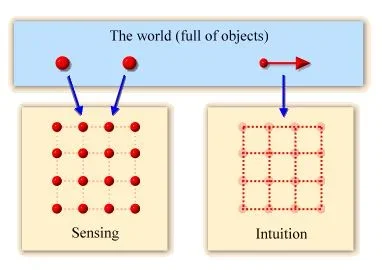@Lady Jolanda,
thank you for including the paper. I had read it years ago but other than taking it for granted (a mistake) then had forgotten the content.
Now let's look at what Sagan wrote.
Encourage substantive debate on the evidence by knowledgeable proponents of all points of view.
Indeed - and this doesn't just mean science vs science but science vs religion to all the better get a complete perspective. However we owe it to the science alone to have the freedom to do this nowadays - authoritarian "religion" has not allowed it in the past except, perhaps, in ancient Greece and/or Alexandria.
Arguments from authority carry little weight—“authorities” have made mistakes in the past. They will do
so again in the future. Perhaps a better way to say it is that in science there are no authorities; at most, there
are experts.
My point about not taking Sagan's words for granted here. But this is also the single most important reason to study science and to make sure we do our utmost to promote it to as wide an influence as humanly possible. Science frees the rational mind from wishful thinking and untruth and is our only tool for understanding ourselves and our universe.
Spin more than one hypothesis. If there’s something to be explained, think of all the different ways in
which it could be explained. Then think of tests by which you might systematically disprove each of the
alternatives. What survives, the hypothesis that resists disproof in this Darwinian selection among
“multiple working hypotheses,” has a much better chance of being the right answer than if you had simply
run with the first idea that caught your fancy.*
Indeed.
Always ask whether the hypothesis can be, at least in principle, falsified. Propositions that are untestable,
unfalsifiable, are not worth much.
This is where Sagan makes a critical error. And it is not a logical error either. The rational (conscious) mind is indeed the tool we must develop before we can reason, communicate, and understand the world around us. It is our first step toward complete undrestanding but it constitutes only half of the personality and it comes with one crippling flaw - it surveys information in the same way a camera captures images taken in the world. The image contains an exact replica of what has been 'scanned' in a state of rest... meanwhile the actual world is constantly in state of motion.
Thus what the rational mind misses is a whole dimension of the universe -
motion (aka interaction) - which happens to be the process behind most members' here's intuition (N) function.
And with this realization we can rest knowing these "other" dimensions are indeed possible, at least in theory.
Wherever possible there must be independent confirmation of the “facts.”
Indeed, except facts belong to the rational mind, again, and hence the same limitation applies.
Really? Would you be willing to elaborate a bit on what made it seem fascinating (well maybe after reading it if you want to refresh yourself.)

